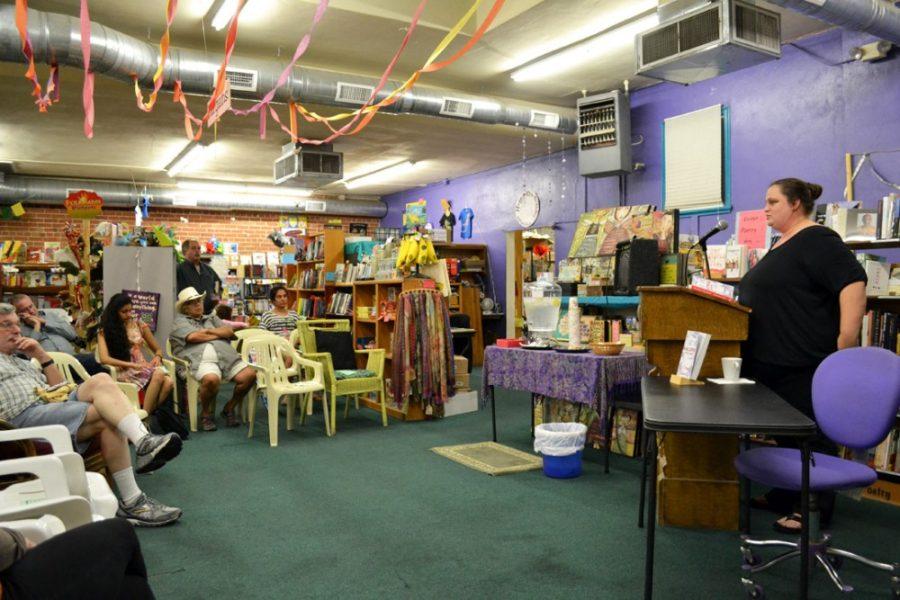Breanne Fahs, an associate professor at Arizona State University and a private practice clinical psychologist, read from her new, unauthorized biography, “Valerie Solanas: The Defiant Life of the Woman Who Wrote SCUM (and Shot Andy Warhol)” Friday night at Antigone Books. Solanas, a veritable mystery, wrote a number of interesting and provocative pieces, and was well-known for being one of Andy Warhol’s Factory actresses. The Daily Wildcat asked Fahs to elaborate more on this woman who ended up trying to assassinate Warhol.
Daily Wildcat: Your book posits the woman who wrote, “The male is a biological accident … an incomplete set of chromosomes,” in an empathetic light. Can you explain how?
Fahs: The SCUM Manifesto, which is what that quote is from, plays with the notion of satire, of reversal. There are lots of things, especially in the mid-1960s, that were being lobbed at women about their “natural inferiority,” the sense that they’re driven by biological imperatives. Valerie’s playing on that by performing this dramatic reversal — saying about men the things that were commonly said about women.
After reading the first five pages of the SCUM Manifesto, I stopped laughing and realized that many of Solanas’ points have a lot of truth to them. To what extent was it supposed to be satirical, if at all?
The bottom line is that we don’t know whether or not this is supposed to be satire or 100 percent serious. After all these years reflecting on that, especially in light of her shooting Andy Warhol — but also in various interviews clearly framing the SCUM Manifesto as a kind of performance — I think it was simultaneously both of those things. As a document, it is both absurd and, in her mind, very true. That’s kind of the power of what absurdity is, in a literary sense.
What would you say is one of the most intriguing things about Solanas?
She is full of contradictions in every imaginable sense. Her sexual orientation is impossible to nail down. She is arguing for the killing of all men, yet has deep and meaningful relationships with different men. She talks about prizing asexuality and celibacy while she’s working as a prostitute. There are endless contradictions about her that raise questions around a person’s biography and their writing and how we reconcile those two halves.
Did Solanas have any particular religious views?
I’ve never come across anything that suggested she had any reverence for religion. In the SCUM Manifesto, she rails against religion as arguing for the supremacy of men over women. I can’t imagine that, in some ways, that didn’t mirror her own views about religion. There’s no evidence that she ever attended church or worshipped anything, really.
Why do you ask your students to write their own manifestos?
The manifesto is incredibly irreverent and urgent and talks about sweeping social reforms. It uses collective pronouns, like the collective “we,” and evokes without even defining who that is. It’s very emotional as a genre, and these are things that I think students don’t have very much exposure to prior to reading manifestos. The process of trying to write your own manifesto, using that kind of language, is very instructive about the things you feel deeply passionate about. It’s a genre that teaches people to figure out where their own voice is in a way that is very important for undergraduates in particular. They need that. They need to have a sense that what they have to say is meaningful and huge and sweeping and big.
What classes are you teaching in the spring at ASU West women’s studies?
Next semester, I’m teaching a class called Trash, Freaks, and Scum, which is about literal trash and people who are constructed as trash, and I’m actually using Valerie a lot. I’m also teaching The Psychology of Gender.
Fahs’ book is available at Antigone Books or online at The Feminist Press.
_______________
Follow Ian Martella on Twitter.









